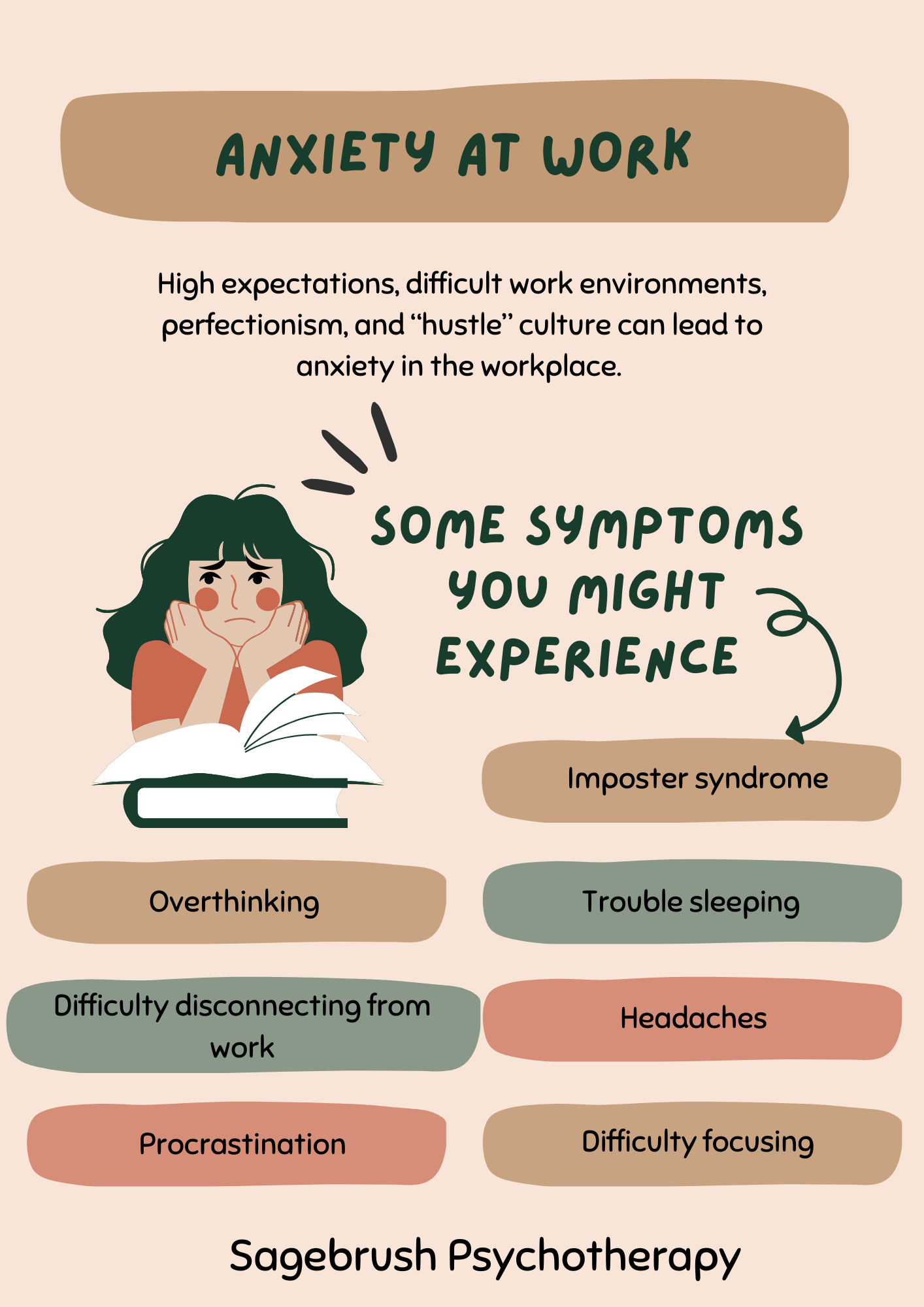Anxiety Therapy Los Angeles | Therapy to Manage Anxiety, Stress, & Worry
Anxiety Treatment in Los Angeles: Find Relief and Reclaim Your Life
If anxiety has had a profound impact on your daily life—interrupting your daily routines, invading your thoughts, or leaving you disconnected from yourself—we see you. Maybe you’ve tried therapy before, or perhaps you’ve been relying on your own strategies, hoping the anxiety would eventually pass, but the racing thoughts, the discomfort in your body, or the overwhelming sense of unease just won’t go away.
You don’t have to face this alone. Whether your anxiety has been a lifelong battle, recently resurfaced, or has escalated to the point where it feels unmanageable, we’re here to help.
Why We are Anxiety Specialists
Anxiety can manifest in ways that feel unrelenting—constant racing thoughts, physical discomfort like tension or nausea, or even moments of dissociation that leave you feeling disconnected and lost. We specialize in anxiety because we understand how profoundly it can affect every part of your life. For those who have been living with anxiety for years or have tried different approaches without finding lasting relief, we’re here to provide something different.
Our approach is designed for people who feel like nothing has worked or whose anxiety has come back stronger than before. Together, we’ll explore your experience, address the underlying causes, and tailor a treatment plan to help you regain control. Some approaches we use are somatic techniques, Cognitive Behavior Therapy (CBT), Dialectical Behavior Therapy (DBT), and exposure therapy.
We know that anxiety is not a one-size-fits-all issue, and recovery isn’t about quick fixes. It’s about creating lasting change, building resilience, and finding a way to live fully even when life feels overwhelming. Whether you’ve been battling anxiety for years or are just starting to seek treatment, we’re committed to helping you move beyond coping and toward thriving.
Understanding Different Anxiety Diagnoses and Symptoms
Anxiety can present itself in many ways, and it's not always easy to pinpoint exactly what you're experiencing. Different anxiety disorders have unique symptoms that can affect your thoughts, emotions, and physical well-being. The DSM-5-TR (Diagnostic and Statistical Manual of Mental Disorders, Fifth Edition, Text Revision) categorizes anxiety disorders into a specific group, separate from related conditions like obsessive-compulsive disorders or trauma-related disorders. Here are the primary anxiety disorders listed in the DSM-5-TR:
-
Symptoms: Persistent, excessive worry about everyday issues such as work, family, or health. Physical symptoms include restlessness, fatigue, muscle tension, irritability, and difficulty concentrating or sleeping.
How It Feels: Like your mind is always racing, constantly anticipating the worst, and finding it hard to relax no matter what you do.
-
Symptoms: Having panic attacks which feel like sudden, intense episodes of fear or terror, often accompanied by physical sensations like a pounding heart, shortness of breath, dizziness, or a feeling of losing control.
How It Feels: As if you're having a heart attack or that something catastrophic is about to happen. Panic attacks can be brief but feel overwhelming and lead to fear of future episodes.
-
Symptoms: Extreme fear of social situations, often accompanied by avoidance behaviors, sweating, trembling, or difficulty speaking.
How It Feels: A deep fear of being judged, humiliated, or rejected. Experiencing social interactions as daunting or impossible.
-
Symptoms: Intense fear of situations where escape might be difficult or help might not be available, such as public transportation, open spaces, enclosed places, standing in lines, or being outside alone. Avoidance of these situations is common.
How It Feels: A sense of being trapped, overwhelmed, or helpless in certain environments. Fear of panic attacks or distressing symptoms often leads to staying home or avoiding public spaces altogether.
-
Symptoms: Intense, irrational fear of a specific object, situation, or activity (e.g., heights, flying, animals, needles), leading to avoidance or extreme distress.
How It Feels: An overwhelming sense of dread or panic when faced with the feared object or situation, even when it poses no real danger. Avoidance becomes a way to manage the fear, sometimes interfering with daily life.
Other Anxiety Concerns
-
Symptoms: Constant worry about physical health, misinterpreting sensations and physical discomfort as serious illnesses, and frequent checking or reassurance-seeking.
How It Feels: Like your body is always on high alert, and every ache or sensation feels like a warning sign of something serious.
-
Symptoms: Feeling detached from your body, disconnected from reality, or as if the world around you isn’t real (derealization).
How It Feels: A sensation of being numb, foggy, or watching your life from a distance without being fully present.
-
Symptoms: Intrusive thoughts (obsessions) and repetitive behaviors (compulsions) performed to reduce distress. Common themes include fear of contamination, harm, or needing things to be "just right."
How It Feels: Like an irrational fear takes control, making certain thoughts impossible to ignore and compelling you to perform rituals to relieve anxiety, even if they don’t make logical sense.
Our Approach: Effective Treatment for Anxiety
Our approach to anxiety treatment combines evidence-based techniques with deep compassion for how anxiety disorders impact your daily life, relationships, and sense of self. Our team of anxiety therapists in Los Angeles will create a personalized treatment plan tailored to your unique needs, helping you navigate your therapy journey with confidence. We incorporate a variety of research-backed modalities to support your healing journey and provide a well-rounded approach to managing anxiety.
-
A structured, evidence-based approach that helps you identify and challenge negative thought patterns contributing to anxiety.
How It Helps: You'll learn how your thoughts, feelings, and behaviors interact and develop healthier, more balanced ways of thinking.
-
Especially effective for managing intense emotions and overwhelming anxiety.
How It Helps: You'll gain skills in emotional regulation, distress tolerance, and mindfulness, allowing you to navigate difficult moments with more ease.
-
A key technique for overcoming fears, particularly in social anxiety disorder, specific phobias, and panic disorder.
How It Helps: Gradual exposure to feared situations in a safe, controlled environment helps you build confidence and reduce anxiety responses over time.
-
Anxiety often pulls you into the past or future, leaving you disconnected from the present.
How It Helps: Mindfulness helps cultivate awareness of the here and now, while grounding techniques bring you back to your body and environment during distressing moments.
-
For those whose anxiety stems from trauma, our specialized training ensures a compassionate and informed approach.
How It Helps: Therapy may involve processing past events, addressing triggers, and building a sense of safety and resilience.
-
Anxiety can often be linked to patterns, dynamics, or experiences rooted in your family of origin.
How It Helps: Exploring these connections allows you to understand the roots of your anxiety and break free from unhelpful cycles.
-
Focuses on reducing the struggle with anxious thoughts rather than trying to eliminate them.
How It Helps: Instead of fighting anxiety, you’ll learn to let thoughts come and go while committing to actions aligned with your values, leading to a more meaningful and fulfilling life.
-
While therapy is a cornerstone of anxiety treatment, medication management may be an option for some individuals.
How It Helps: If medication is part of your plan, we collaborate with medical professionals to ensure a balanced approach to treatment.
Workplace Anxiety in Los Angeles: Navigating High Expectations and Stress
Workplace anxiety is a common concern for professionals in Los Angeles, where high-pressure industries, systemic challenges, and relentless expectations contribute to feeling anxious on the job. Whether you work in entertainment, tech, corporate settings, or another demanding field, these stressors can trigger anxiety and affect both mental and physical well-being. The pressure to perform, the expectation to always be available, and workplace discrimination can make it difficult to find balance, leading many to seek anxiety therapy for relief.
Burnout and High Expectations
In Los Angeles' fast-paced work culture, burnout is a common struggle. The pressure to meet impossible deadlines and maintain a constant "hustle" mentality can lead to chronic fatigue, where physical and emotional exhaustion persist despite rest. Many professionals experience anxiety as they lose motivation, feeling disconnected from their goals or questioning why they started in the first place. Productivity can also suffer, making it difficult to focus, stay organized, or complete tasks efficiently. The always-on mindset in many industries makes it difficult to establish a healthy work-life balance, further fueling anxiety disorders and increasing stress levels.
Sexism and Racism in the Workplace
For many professionals, workplace anxiety is compounded by systemic discrimination. Individuals from marginalized communities may feel pressured to work harder than their peers just to be taken seriously, leading to unfair expectations and constant self-monitoring. Microaggressions, subtle but harmful comments or actions, can create an unwelcoming environment and undermine confidence. Many also experience isolation, finding themselves one of the few people from their background in their industry, which can make networking and career advancement even more challenging. Additionally, the burden of emotional labor, such as advocating for equity while maintaining professionalism, adds another layer of stress. These challenges not only impact career growth but also contribute to heightened anxiety disorders, frustration, and self-doubt.
Symptoms of Work-Related Anxiety
Workplace anxiety can manifest in various ways, affecting emotions, physical health, behavior, and cognitive functioning. Emotional symptoms may include overthinking, irritability, imposter syndrome, or feeling constantly overwhelmed. Physical symptoms often appear as muscle tension, fatigue, headaches, stomach issues, or trouble sleeping. In terms of behavior, workplace anxiety can lead to avoiding tasks, procrastinating, overworking, or withdrawing from colleagues. Cognitive symptoms such as difficulty focusing, negative self-talk, catastrophizing, or an inability to disconnect from work make it even harder to function effectively.
How Anxiety Therapy Can Help
Working with an anxiety therapist in Los Angeles can provide strategies to manage workplace stress, set boundaries, and improve emotional resilience. Anxiety therapy focuses on identifying triggers, challenging negative thought patterns, and developing personalized coping tools suited to your work environment. Whether through cognitive-behavioral techniques, mindfulness practices, or stress management strategies, therapy can help you regain control and find balance in both your career and personal life. If workplace anxiety is affecting your well-being, seeking professional support can be a crucial step toward long-term relief and stability.
Anxiety Resources
Created by the UCLA Mindful Awareness Research Center, this app provides free guided meditations and a weekly podcast. It's designed to help users manage stress and cultivate mindfulness in daily life.
This app combines neuroscience and contemplative traditions to offer guided meditations and podcast-style lessons aimed at improving well-being and reducing anxiety.
This app provides a vast library of free guided meditations, music tracks, and talks led by mindfulness experts. It's suitable for both beginners and experienced practitioners aiming to reduce anxiety and improve overall well-being.
In the video "Beyond the Storm of Fear," Zen Master Thich Nhat Hanh offers teachings on embracing and understanding anxiety to cultivate peace and resilience.
This video provides a guided session to help individuals systematically tense and relax muscle groups, aiming to reduce physical tension, alleviate anxiety, and improve sleep quality.
Starting with an Anxiety Therapist in Los Angeles
We understand that everyone's experience with anxiety is unique, and we respect your individual path. Whether you're looking for help with managing racing thoughts, soothing physical symptoms, or dealing with anxiety's effects on your relationships, we're here to support you at your own pace.
You deserve a life free from the overwhelming cycles of worry, fear, and self-doubt. Through compassionate and evidence-based care, you can reclaim your sense of calm, rebuild confidence, and create a life that aligns with your values.
Visit one of our in-person offices in Los Angeles or opt for online therapy. Together, we can work towards relief and help you regain control of your life.
Frequently Asked Questions
-
If previous therapy didn’t meet your needs, it doesn’t mean anxiety treatment won’t work for you. We specialize in helping those with chronic anxiety or those whose symptoms have returned. Treatment addresses commitment to change, getting to know you and your triggers, and finding what approaches work best for you.
-
Anxiety can be caused by various factors, including genetics, brain chemistry, past trauma, chronic stress, or significant life changes. Environmental and societal pressures, such as work demands or systemic challenges, can also play a role.
-
Mindfulness helps manage anxiety by shifting your focus to the present moment. It reduces overthinking, calms physical symptoms like tension and a racing heart, and increases self-awareness of triggers and thought patterns. By practicing mindfulness, you can break the cycle of anxious thoughts and feel more grounded and in control. Techniques like breathing exercises and meditation are often used in therapy to support anxiety relief.
-
Coping with a panic attack involves grounding exercises, deep breathing, and mindfulness techniques to calm the nervous system. Cognitive therapy helps identify and change unhelpful beliefs that contribute to panic, allowing you to reframe anxious thoughts and reduce fear.
-
Finding the right therapist depends on your unique concerns, whether you’re struggling with OCD, social phobia, panic attacks, or other mood disorders. We focus on evidence-based techniques to ensure effective treatment, tailoring therapy approaches to each individual’s needs. Below is a list of anxiety and related conditions and specific treatment methods that are recommended.
Obsessive-Compulsive Disorder (OCD): Cognitive Behavioral Therapy (CBT) with Exposure and Response Prevention (ERP) is the gold standard for OCD treatment. ERP helps individuals gradually face feared thoughts or situations while resisting compulsive behaviors, reducing anxiety over time.
Social Phobia (Social Anxiety Disorder): CBT and mindfulness-based cognitive therapy (MBCT) help challenge negative thought patterns and build confidence in social situations. Exposure therapy gradually increases comfort with feared interactions, such as public speaking or meeting new people.
Panic Attacks (Panic Disorder): Cognitive therapy helps individuals reframe catastrophic thinking about physical sensations (e.g., rapid heartbeat, dizziness) that trigger anxiety. Breathing techniques, relaxation exercises, and interoceptive exposure reduce fear of future panic attacks.
Generalized Anxiety Disorder (GAD): Cognitive Behavioral Therapy (CBT) is highly effective, teaching individuals to challenge excessive worry and develop problem-solving strategies.
Depression and Mood Disorders: CBT helps reframe negative thoughts and prevent rumination, while behavioral activation encourages engagement in meaningful activities to improve mood. Trauma-informed therapy can also address underlying emotional distress contributing to depression.
Trauma and PTSD: Eye Movement Desensitization and Reprocessing (EMDR) and Trauma-Focused CBT (TF-CBT) help process traumatic memories and reduce their emotional impact. Mindfulness-based stress reduction is also beneficial for calming the nervous system and reducing hypervigilance.








